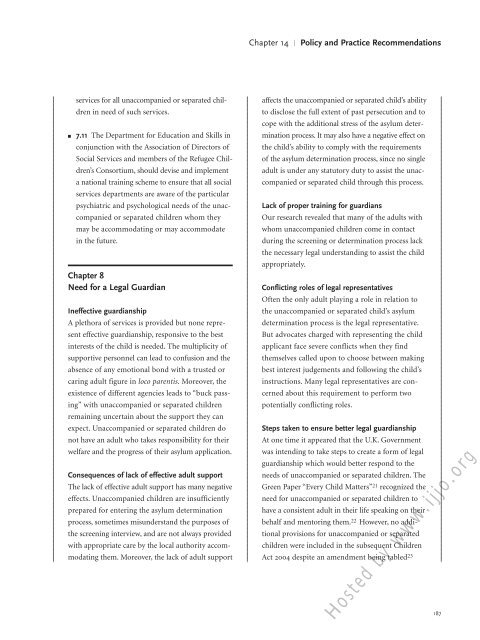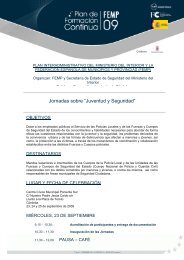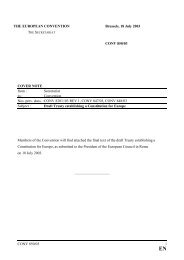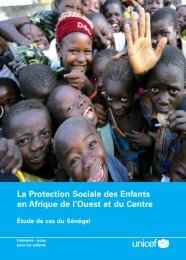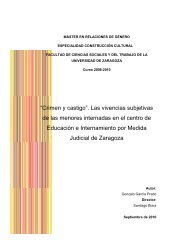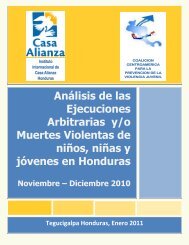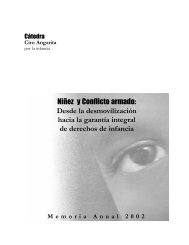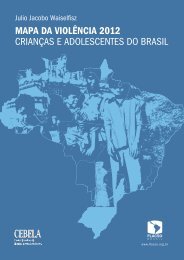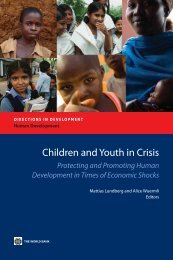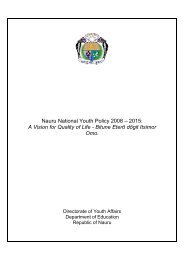Hosted by www.ijjo.org
Hosted by www.ijjo.org
Hosted by www.ijjo.org
Create successful ePaper yourself
Turn your PDF publications into a flip-book with our unique Google optimized e-Paper software.
Chapter 14 | Policy and Practice Recommendations<br />
■<br />
services for all unaccompanied or separated children<br />
in need of such services.<br />
7.11 The Department for Education and Skills in<br />
conjunction with the Association of Directors of<br />
Social Services and members of the Refugee Children’s<br />
Consortium, should devise and implement<br />
a national training scheme to ensure that all social<br />
services departments are aware of the particular<br />
psychiatric and psychological needs of the unaccompanied<br />
or separated children whom they<br />
may be accommodating or may accommodate<br />
in the future.<br />
Chapter 8<br />
Need for a Legal Guardian<br />
Ineffective guardianship<br />
A plethora of services is provided but none represent<br />
effective guardianship, responsive to the best<br />
interests of the child is needed. The multiplicity of<br />
supportive personnel can lead to confusion and the<br />
absence of any emotional bond with a trusted or<br />
caring adult figure in loco parentis. Moreover, the<br />
existence of different agencies leads to “buck passing”<br />
with unaccompanied or separated children<br />
remaining uncertain about the support they can<br />
expect. Unaccompanied or separated children do<br />
not have an adult who takes responsibility for their<br />
welfare and the progress of their asylum application.<br />
Consequences of lack of effective adult support<br />
The lack of effective adult support has many negative<br />
effects. Unaccompanied children are insufficiently<br />
prepared for entering the asylum determination<br />
process, sometimes misunderstand the purposes of<br />
the screening interview, and are not always provided<br />
with appropriate care <strong>by</strong> the local authority accommodating<br />
them. Moreover, the lack of adult support<br />
affects the unaccompanied or separated child’s ability<br />
to disclose the full extent of past persecution and to<br />
cope with the additional stress of the asylum determination<br />
process. It may also have a negative effect on<br />
the child’s ability to comply with the requirements<br />
of the asylum determination process, since no single<br />
adult is under any statutory duty to assist the unaccompanied<br />
or separated child through this process.<br />
Lack of proper training for guardians<br />
Our research revealed that many of the adults with<br />
whom unaccompanied children come in contact<br />
during the screening or determination process lack<br />
the necessary legal understanding to assist the child<br />
appropriately.<br />
Conflicting roles of legal representatives<br />
Often the only adult playing a role in relation to<br />
the unaccompanied or separated child’s asylum<br />
determination process is the legal representative.<br />
But advocates charged with representing the child<br />
applicant face severe conflicts when they find<br />
themselves called upon to choose between making<br />
best interest judgements and following the child’s<br />
instructions. Many legal representatives are concerned<br />
about this requirement to perform two<br />
potentially conflicting roles.<br />
Steps taken to ensure better legal guardianship<br />
At one time it appeared that the U.K. Government<br />
was intending to take steps to create a form of legal<br />
guardianship which would better respond to the<br />
needs of unaccompanied or separated children. The<br />
Green Paper “Every Child Matters” 21 recognized the<br />
need for unaccompanied or separated children to<br />
have a consistent adult in their life speaking on their<br />
behalf and mentoring them. 22 However, no additional<br />
provisions for unaccompanied or separated<br />
children were included in the subsequent Children<br />
Act 2004 despite an amendment being tabled 23 187<br />
<strong>Hosted</strong> <strong>by</strong> <strong>www</strong>.<strong>ijjo</strong>.<strong>org</strong>


